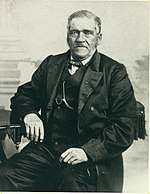North Concord/Martinez station
1995 establishments in CaliforniaBay Area Rapid Transit stations in Contra Costa County, CaliforniaBuildings and structures in Concord, CaliforniaMartinez, CaliforniaRailway stations in the United States opened in 1995 ... and 4 more
San Francisco Bay Area railway station stubsSan Francisco metro stubsStations on the Yellow Line (BART)Use mdy dates from January 2023

North Concord/Martinez station is a Bay Area Rapid Transit (BART) station located in the Sun Terrace neighborhood of Concord, California. The station serves the northern area of Concord and nearby Martinez. It is located near State Route 4.
Excerpt from the Wikipedia article North Concord/Martinez station (License: CC BY-SA 3.0, Authors, Images).North Concord/Martinez station
Port Chicago Highway, Concord
Geographical coordinates (GPS) Address Nearby Places Show on map
Geographical coordinates (GPS)
| Latitude | Longitude |
|---|---|
| N 38.003273 ° | E -122.024599 ° |
Address
Port Chicago Highway 3760
94520 Concord
California, United States
Open on Google Maps







